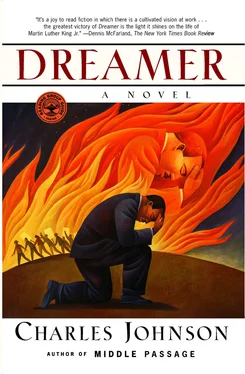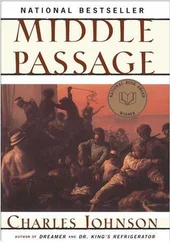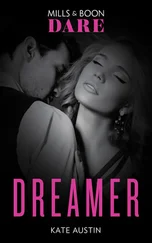“Okay,” I said, “what’s bothering him? Everything went perfectly.”
“Yes, but it’s not what he wants now. He says we’re treating him like a clay pigeon. A decoy. Chaym says he’s better than that, as good as King any day, and he wants a chance to prove it.”
“Maybe he’s got it.”
“Huh?”
“I’ll explain later. You said he’s still in the car?”
“Last time I looked, but—”
I was halfway down the stairs before she finished, pushing through a crowd at the door and SCLC workers holding them back. I circled round the block to where we’d left the Chevelle, but I was thinking of Amy, how warm and soft she’d felt in the crook of my arm. I’d wanted badly to hold her. Problem was, the fool I’d made of myself in the farmhouse was green in my memory, and I decided I could be satisfied with just being there, asking for nothing, if she needed my shoulder, or a hand to hold, or someone to listen. Outcasts, I’d learned from Chaym (though perhaps he failed at this himself), learned not to ask for much, yet were there if the Abelites were in need.
I walked up behind the Chevelle and saw Smith so absorbed in what he was doing he failed to hear my footsteps approaching. He was rummaging, I realized, through his suitcoat. Then he found what he was looking for. A small case containing a hypodermic needle wrapped in cotton. Smith tore off his coat, unbuttoned the left cuff of his shirt, and rolled back the sleeve. He jabbed his fingers along the length of his forearm, found a likely spot, and held the needle up, pushing out its air bubble. I watched him lick a spot on his forearm wet and shiny with spittle; then he broke skin with the needle and, his eyes heavily lidded, he watched thin fluid vanish from the needle into his vein.
He replaced the needle in its case, put that in the jacket pocket, dropped his head back on the car’s vinyl seat, and let his tortured mind dream. For a long time I did not move; I did not wish to interrupt him, for without dreams, even drug-induced ones, all a black man has left are nightmares. After I got hold of myself, I walked to his window and knocked with my knuckles on the glass.
“Doc says he needs us tonight. You up for that, Chaym?”
He sniffed and nodded. “I’m good.”
“I’ll bet. Can you accept an award for him?”
“Hell yeah, I’m ready to do any thing.”
“You want to talk?”
“What the fuck about? You wanna talk to somebody, Bishop, go to confession.”
I let that ride, easing onto the front seat beside him, resolving to say nothing of what I’d seen to either Doc or Amy. As long as he could do the job, and cover the minister’s back if a gig went sour, who was I, after all, to cast the first stone?
Calvary AME Church, a pitched-roof, redbrick building with two lancet-arched doorways and a blue and white sign swinging from its southwest edge on the corners of Emerson and Darrow streets in the quiet, progressive suburb of Evanston, was plain and inconspicuous enough for travelers to completely miss — like so much in the black world — if they weren’t looking for it. Its rich, never recorded history was hidden inside, stored within every parishioner, or so Amy said that evening after the Marquette march as we sped down the Outer Drive, crossing bustling Howard Street into a sleepy suburb quite different from south or west Chicago. The riots and agony of marching in the city had largely bypassed the cultural island of Evanston. Most black residents were too busy making a living and caring for their children to take a day off for civil disobedience, though they cared deeply about the Movement’s northern campaign and cheered King, the rebel messiah, the almost paradoxical fusion of Cain and Abel, when the Chicago campaign put into practice his ingenious method of “creative tension” aimed at disrupting the status quo by forcing long-buried hatreds to surface, where they were exposed for the world to see. King’s philosophy notwithstanding, “creative tension” was an act of violence, the murder of a repressive past so that a new order — God’s order — could be born. Yet Evanston, while not the fabled Promised Land, was a curious pocket of tranquillity compared to the Black Belt. There, residents could walk safely at night from one end of town to the other. Liquor was not sold — for that you had to drive to Skokie. There were white millionaires, blue-collar black homeowners bonded by church affiliations, an integrated school system, stores and movie theaters (three), and some years the best public high school in the nation. (However, the school superintendent did demand parental permission on both sides before he would condone interracial dating.)
Because Mama Pearl, once an employee of Fanny’s Restaurant in Evanston, occasionally attended services with friends at Calvary AME, Amy knew something of the town’s older black residents, mostly craftsmen — plumbers and electricians — transplanted from the South during World War II, whole families that migrated up the Illinois Central Railroad from the Mississippi Delta, from Tennessee and Arkansas and western Kentucky in the greatest mass movement of humanity in American history. They were, in their own way, initially outcasts. Their church, started in Philadelphia in 1787 after the Great Awakening by Richard Allen, was equidistant from the ivied halls and manicured lawns of Northwestern University and the all-black Center Hospital, situated on the canal dividing Evanston from lily-white Skokie. According to Amy’s mother, nearly half the church’s teenagers came into the world at Center Hospital, and each could claim a single, courageous black woman, Dr. Jennifer Hale, as the person who saw them before their own mothers and spanked wind into their lungs. Amy said that decades earlier when Hale, a beautiful, buff-colored young doctor with the gentility one associates with Creoles, arrived in Evanston, she discovered that black patients were turned away from the doors of Evanston’s white hospital farther north near Wilmette, regardless of how sick they might be. Segregation forced Hale to ferry her patients to hospitals on Chicago’s South Side, and too many died on the way for her to rest with this disastrous arrangement. She was outraged. Her patients, while pariahs to the white population, worked in white homes and saved to send their children to college — that, after forming their own neighborhood YMCA and colored Boy and Girl Scout chapters; some held down three jobs a week, always struggling and sacrificing to free their sons and daughters from the curse of color that hung over their own lives. The idea of public assistance was anathema to many of them, such a blow to their southern pride that they never considered for a moment turning outside their own families — or extended families — for help. They treated all the black children at Calvary AME as their own, scolding them and telling their parents if in public they behaved in ways that reflected badly on the struggling community as a whole.
By mobilizing blacks and whites of conscience, Hale became one of the principal players in first envisioning, then coaxing into being, Center Hospital; and by doing this, Amy said, she saved countless black lives as well as created jobs for other doctors, nurses, and dentists of color. The hospital, though never as large or as well-funded as its white counterpart, was nevertheless something of a beacon of pride for local blacks in the 1950s, and Dr. Hale justly held a place of high esteem in Evanston. Her life was her work. She never married, but she delivered countless baby boomers after the war — her “children,” she called them — and many were pleasantly shocked to realize that Hale recognized them by name twenty years later as she traveled from one Evanston home to another, making house calls.
Читать дальше












